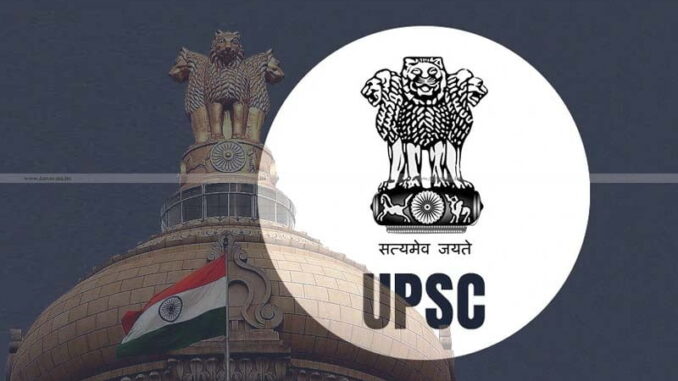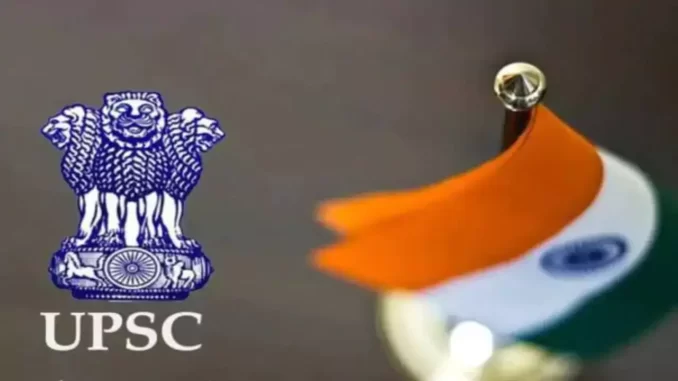
Introduction
UPSC is the acronym for Union Public Service Commission, which is India’s premier central recruitment agency for the Government of India. UPSC is responsible for conducting various examinations for the selection of candidates for All India Services, Central Services, and Cadres, as well as the Armed Forces of the Union of India. Some of the most popular and prestigious exams conducted by UPSC are:
- Civil Services Examination (CSE): This exam is held annually to recruit candidates for the Indian Administrative Service (IAS), Indian Foreign Service (IFS), Indian Police Service (IPS), and other Group A and Group B services of the central government. The CSE consists of three stages: Preliminary, Mains, and Interview.
- Engineering Services Examination (ESE): This exam is held annually to recruit candidates for the Indian Engineering Services (IES), which comprise engineers who work under the government of India and are designated as Class – 1 officers. The ESE consists of four stages: Preliminary, Mains, Personality Test, and Medical Examination.
- Indian Forest Service Examination (IFoS): This exam is held annually to recruit candidates for the Indian Forest Service (IFS), which is one of the three All India Services. The IFoS officers are responsible for the management and conservation of forests and wildlife in India. The IFoS exam consists of two stages: Preliminary and Mains. The Preliminary stage is common with the CSE Preliminary exam, while the Mains stage has a separate syllabus and pattern.
- Central Armed Police Forces Examination (CAPF): This exam is held annually to recruit candidates for the Assistant Commandants (Group A) in the Central Armed Police Forces (CAPF), which include the Border Security Force (BSF), Central Reserve Police Force (CRPF), Central Industrial Security Force (CISF), Indo-Tibetan Border Police (ITBP), and Sashastra Seema Bal (SSB). The CAPF exam consists of two stages: Written Examination and Physical Efficiency Test/Interview/Medical Examination.
- Indian Economic Service and Indian Statistical Service Examination (IES/ISS): This exam is held annually to recruit candidates for the Indian Economic Service (IES) and the Indian Statistical Service (ISS), which are inter-ministerial and inter-departmental Group A services under the government of India. The IES/ISS exam consists of two stages: Written Examination and Viva Voce.
- Combined Geo-Scientist and Geologist Examination: This exam is held annually to recruit candidates for the posts of Geologist, Geophysicist, Chemist, and Junior Hydrogeologist in the Geological Survey of India (GSI) and the Central Ground Water Board (CGWB). The Combined Geo-Scientist and Geologist exam consists of three stages: Preliminary, Mains, and Personality Test.
- Combined Medical Services Examination (CMS): This exam is held annually to recruit candidates for various posts like Assistant Divisional Medical Officer, Assistant Medical Officer, Junior Scale Posts, General Duty Medical Officer, etc. in different Central Health Services under the government of India. The CMS exam consists of two stages: Computer Based Examination and Personality Test.
Upcoming UPSC Exams 2023-2024 – Important Dates
Aspirants willing to apply for the upcoming exams in 2023 must check the important dates of the exams. It is important to keep track of all the important dates of upcoming government exam 2023 notifications and dates so that major events will not get missed. Check the table below to know the important dates of upcoming government exams in 2023.

Upcoming UPSC Exams 2024
| Exam Name | Notification date | Last date to apply | Prelims Exam | Mains Exam |
|---|---|---|---|---|
| ESE 2024 | September 6, 2023 | September 26, 2023 | February 18, 2024 | June 23, 2024 |
| Combined Geo-Scientist and Geologist Examination | September 20, 2023 | October 10, 2023 | February 18, 2024 | June 22, 2024 |
| NDA & NA I 2024 | December 20, 2023 | January 9, 2024 | April 21, 2024 | NA |
| CDS I 2024 | December 20, 2023 | January 9, 2024 | April 21, 2024 | NA |
| Civil Services Examination | February 14, 2024 | March 5, 2024 | May 26, 2024 | September 20, 2024 |
| Indian Forest Service Examination, 2024 | February 14, 2024 | March 5, 2024 | May 26, 2024 | November 24, 2024 |
| IES/ISS Examination 2024 | April 10, 2024 | April 30, 2024 | June 21, 2024 | NA |
| Combined Medical Services Examination, 2024 | April 10, 2024 | April 30, 2024 | July 14, 2024 | NA |
| Central Armed Police Forces (ACs) Examination, 2024 | April 24, 2024 | May 14, 2024 | August 4, 2024 | NA |
| CDS II 2024 | May 15, 2024 | June 4, 2024 | September 1, 2024 | NA |
| NDA II 2024 | May 15, 2024 | June 4, 2024 | September 1, 2024 | NA |
Upcoming UPSC Exams 2023
| Exam Name | Notification date | Last date to apply | Prelims Exam | Mains Exam |
|---|---|---|---|---|
| ESE 2023 | September 14, 2022 | October 4, 2022 | February 19, 2023 | June 25, 2023 |
| Combined Geo-Scientist and Geologist Examination | September 21, 2022 | October 11, 2022 | February 19, 2023 | June 24, 2023 |
| NDA & NA I 2023 | December 21, 2022 | January 10, 2023 | April 16, 2023 | June 24, 2023 |
| NDA & NA I 2023 | December 21, 2022 | January 10, 2023 | April 16, 2023 | NA |
| CDS I 2023 | December 21, 2022 | January 10, 2023 | April 16, 2023 | NA |
| Indian Forest Service Examination, 2023 | February 1, 2023 | February 21, 2023 | May 28, 2023 | November 26, 2023 |
| IES/ISS Examination 2023 | April 19, 2023 | May 9, 2023 | June 23, 2023 | NA |
| Combined Medical Services Examination, 2023 | April 19, 2023 | May 9, 2023 | July 16, 2023 | NA |
| Central Armed Police Forces (ACs) Examination, 2023 | April 26, 2023 | May 16, 2023 | August 6, 2023 | NA |
| CDS II 2023 | May 17, 2023 | June 6, 2023 | September 3, 2023 | NA |
| NDA II 2023 | May 17, 2023 | June 6, 2023 | September 3, 2023 | NA |
Age Limit for IAS 2024
The candidates must have attained 21 years of age and be less than 32 years of age as of 1st August 2024 i.e., the candidate must have been born not earlier than 2nd August 1992 and not later than 1st August 2003.
Candidates must also be aware of the minimum age limit and maximum age limit for different categories. The details are given below.
| Category | Minimum Age Limit for UPSC | Maximum Age Limit for UPSC |
|---|---|---|
| IAS exam Age Limit for General Category | 21 | 32 |
| EWS | 21 | 32 |
| SC/ST | 21 | 37 |
| IAS OBC Age Limit | 21 | 35 |
UPSC IAS Exam 2024 – Number of attempts
The number of attempts for various categories of candidates planning to appear for UPSC IAS 2024 is given below.
| General/EWS | SC/ST | OBC | PwBD | |
|---|---|---|---|---|
| Number of attempts | 6 | unlimited | 9 | 09 for General/EWS/OBC Unlimited for SC/ST |
UPSC Civil Service Exam Pattern 2024- Prelims
| Paper | Type | No. of questions | UPSC Total Marks | Duration | Negative marks |
|---|---|---|---|---|---|
| General Studies I | Objective | 100 | 200 | 2 hours | Yes |
| General Studies II (CSAT) | Objective | 80 | 200 | 2 hours | Yes |
| Total Marks | 400 (where GS Paper II is qualifying in nature with minimum qualifying marks fixed at 33%) |
UPSC CSE Exam Pattern 2024- Mains
| Subject | UPSC Books |
|---|---|
| History, Indian Heritage & Culture [GS Paper 1] | 1.Indian Art and Culture by Nitin Singhania 2.India’s Struggle for Independence by Bipan Chandra |
| Geography [GS Paper 1] | 1.Geography of India by Majid Husain 2.World Geography by Majid Husain 3.Fundamentals of Physical Geography NCERT Class 11 |
| Polity & International Relations [GS Paper 2] | 1.Indian Polity by M. Laxmikanth 2.Introduction to the Constitution of India by DD Basu 3.International Relations: Pushpesh Pant |
| Economy [GS Paper 3] | 1.Indian Economy – Nitin Singhania 2.Environment and Disaster Management – Tata McGraw Hill 3.Challenges to Internal Security of India – Ashok Kumar |
| Ethics [GS Paper 4] | 1.Ethics, Integrity and Aptitude for Civil Services Main Examination by Subba Rao and P.N. Roy Chaudhary |
UPSC Prelims Books
| Subject | Books |
|---|---|
| History | 1.India’s Struggle for Independence – Bipan Chandra 2.Indian Art and Culture by Nitin Singhania |
| Geography | 1.Certificate Physical Geography – G C Leong 2.World Atlas (Orient Black Swan) |
| Indian Polity | 1.Indian Polity – M Laxmikanth |
| Economics | 1.Indian Economy by Nitin Singhania 2.Economic Development & Policies in India – Jain & Ohri |
| International Relations | Current Affairs |
| CSAT | 1.Tata McGraw Hill CSAT Manual 2.Verbal & Non-Verbal Reasoning – R S Aggarwal |
UPSC Mains Books
| Subject | UPSC Books |
|---|---|
| History, Indian Heritage & Culture [GS Paper 1] | 1.Indian Art and Culture by Nitin Singhania 2.India’s Struggle for Independence by Bipan Chandra |
| Geography [GS Paper 1] | 1.Geography of India by Majid Husain 2.World Geography by Majid Husain 3.Fundamentals of Physical Geography NCERT Class 11 |
| Polity & International Relations [GS Paper 2] | 1.Indian Polity by M. Laxmikanth 2.Introduction to the Constitution of India by DD Basu 3.International Relations: Pushpesh Pant |
| Economy [GS Paper 3] | 1.Indian Economy – Nitin Singhania 2.Environment and Disaster Management – Tata McGraw Hill 3.Challenges to Internal Security of India – Ashok Kumar |
| Ethics [GS Paper 4] | 1.Ethics, Integrity and Aptitude for Civil Services Main Examination by Subba Rao and P.N. Roy Chaudhary |
Conclusion
The Union Public Service Commission (UPSC) plays a pivotal role in recruiting top talent for the Government of India through a series of prestigious examinations. These include the Civil Services Examination, Engineering Services Examination, Indian Forest Service Examination, and more. Aspiring candidates must be mindful of crucial dates for application and examination, as detailed in the provided tables.
Additionally, it’s essential for candidates to be aware of the age limits and attempts allowed for each category. This ensures that they meet the eligibility criteria for their desired examination. The UPSC examination pattern for both Prelims and Mains has been outlined, along with recommended study materials for each subject.
Preparation with the suggested UPSC books, covering a range of subjects from History to Ethics, can significantly enhance a candidate’s chances of success. Diligent study and a comprehensive understanding of the syllabus are key to excelling in these highly competitive exams.
In essence, with thorough preparation, a clear understanding of the examination process, and a dedicated approach, aspiring candidates can strive to achieve success in UPSC examinations and contribute meaningfully to the public service sector of India.
Leave a Reply